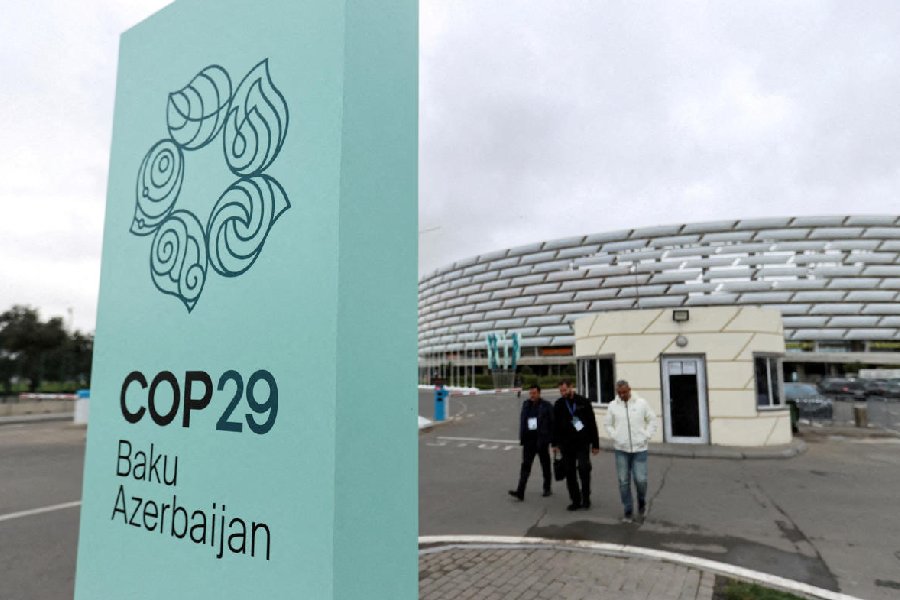An air of uncertainty hangs over a new climate financing proposal under which the world’s rich countries will provide developing nations $1 trillion annually or 10 times more than what they had pledged 15 years ago.
Climate analysts tracking national positions ahead of the 29th UN climate change conference in Azerbaijan next month have attributed the uncertainty to silence over the proposal from developed countries that have already reneged on their 2009 pledges.
The developed countries “have abstained from any engagement on the quantum of finance” to be provided under what is called the New Collective Quantified Goal (NCGQ) on climate finance, the Centre for Science and Environment (CSE), an Indian environmental think tank, has said in a report earlier this week.
The NCGQ, expected to be agreed on at the November 11-22 climate conference in Baku, Azerbaijan, will replace the commitments made by the developed countries at the 2009 Copenhagen conference — ratified at subsequent summits — to provide $100 billion a year to developing nations.
Many analysts assert that those commitments have never been genuinely fulfilled. “The global south has been repeatedly let down by unmet pledges and commitments,” Sunita Narain, the CSE director-general, said.
“Support from the global north on climate finance has been inadequate
considering their historical responsibility in the global temperature rise.
We’re hoping to see some change in Baku.”
The CSE report titled “Show Us the Money” claims that only one per cent of the global gross domestic produce — about $1 trillion — can meet the developing countries’ immediate climate requirements.
Developing countries hope to use the finance from rich countries for multiple climate-related activities — from reducing their fossil-fuel emissions and switching to renewable energy sources, to adapting to rising global temperatures.
“In an atmosphere where trust has eroded in the multilateral process, the NCGQ is among the last opportunities for the global north to course correct, show courage, pay its fair share,” said Avantika Goswami, a coauthor of the report.
The report has, however, flagged concerns that developed countries are pushing for an expansion of the contributors’ base and for the inclusion of private finance. But developed nations have emphasised that international public finance must be the core component of NCGQ.
At the 2015 UN climate conference in Paris, all countries had agreed on a legally binding agreement to cut Earth-warming greenhouse emissions so that average global warming remains within 2°C, preferably within 1.5°C from temperatures in the pre-industrial era.
But a recent UN report, as reported by The Telegraph on October 28, shows that the world has so far faltered on its agreed goal, mainly because of the lack of action by developed countries and lack of funding support for developing and vulnerable countries, including India.
Developing countries have consistently argued that the developed nations — the historical polluters — need to support climate-related actions in developing countries through finance and technology.
Other climate experts echo the sentiments in the CSE report.
“Climate science and history confirm that wealthy nations, having consumed the majority of fossil fuels since the industrial age, bear the primary responsibility for climate finance,” said Harjeet Singh, a climate activist and global engagement director for the Fossil Fuel Non-Proliferation Treaty Initiative aimed at curbing the use of fossil fuels.
“Yet these countries are pushing for large developing countries to contribute as well, clearly aiming to dilute their own unmet obligations and shift burdens to those with less historical responsibility,” Singh said.










